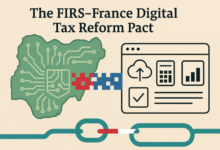FG Sets 16 as Minimum University Admission Age, Moves to Tackle Exam Malpractice

Federal Government to enforce age benchmark for tertiary education as part of sweeping reforms to restore merit, maturity, and integrity in Nigeria’s academic system
In a decisive move aimed at strengthening standards in Nigeria’s higher education sector, the Federal Government has formally pegged 16 years as the minimum age for university and other tertiary admissions, warning institutions against violating the new directive.
Speaking at the 2025 Policy Meeting of the Joint Admissions and Matriculation Board (JAMB) in Abuja, Minister of Education, Dr. Tunji Alausa, described the age policy as essential for aligning cognitive maturity with academic preparedness.
“This is a non-negotiable benchmark. Age 16 reflects the balance between intellectual readiness and psychological development necessary for tertiary education,” Dr. Alausa declared.
The announcement formalises what has previously been an unwritten norm and introduces clear-cut penalties for falsifying candidate ages or circumventing the rule—acts that, according to the minister, would attract institutional sanctions.
Catering to Exceptionally Gifted Learners
Dr. Alausa acknowledged that provisions exist for exceptionally gifted students who may reach university-level readiness before age 16. However, he emphasised that such cases must be thoroughly documented and justifiably exceptional—not routine.
This clause is intended to preserve space for child prodigies and accelerated learners while ensuring that the majority of entrants meet both academic and developmental thresholds.
Crackdown on Exam Malpractice: A National Clearinghouse Launched
Perhaps even more significant was the unveiling of a Central Examination Malpractice Unit, a new initiative designed to consolidate and coordinate nationwide efforts against cheating and fraud across all education levels.
Describing exam malpractice as a “cancer” in Nigeria’s education system, Dr. Alausa said the unit would be chaired by Abel Enitan, the Permanent Secretary of the Federal Ministry of Education, and would serve as:
- A centralised database for malpractice offences
- A policy engine for inter-agency coordination
- A compliance watchdog to ensure cases are prosecuted under the Exam Malpractices Act
“The goal is clear: eliminate the culture of impunity that rewards dishonesty and punishes merit,” Alausa said.
Toward a Digital Examination Future
In a further reform step, the Federal Government announced support for West African Examinations Council (WAEC) and National Examinations Council (NECO) to transition toward computer-based testing (CBT) — a move long championed by JAMB.
This shift is expected to:
- Improve test integrity and fairness
- Reduce incidents of paper leakages and impersonation
- Align Nigeria’s assessment architecture with global best practices
Policy Implications: Reform or Repercussion?
The 16-year age floor signals a deliberate federal intervention in what has historically been a loosely regulated admissions process. It also has economic and social implications:
- Parents may now need to rethink early school enrolment and aggressive “fast-tracking” of children
- Private schools that offer accelerated curricula must recalibrate their systems
- Higher institutions, already under pressure to meet enrolment quotas, may need to adjust timelines or admit fewer underaged students
Critics might argue this policy could limit access for exceptionally bright students. But education experts counter that early university entry often sacrifices emotional maturity, which is critical for success in Nigeria’s highly socialised learning environment.
Bottom Line: Raising the Bar for Equity and Excellence
In a system long plagued by shortcuts, falsifications, and underage admissions, the Federal Government’s actions mark a turning point in restoring discipline, merit, and maturity to the Nigerian education landscape.
Coupled with the anti-malpractice drive and a pivot to digital testing, the reforms signal a new phase of institutional accountability—one where policies are backed by enforcement, and where access must meet standards, not just ambitions.










